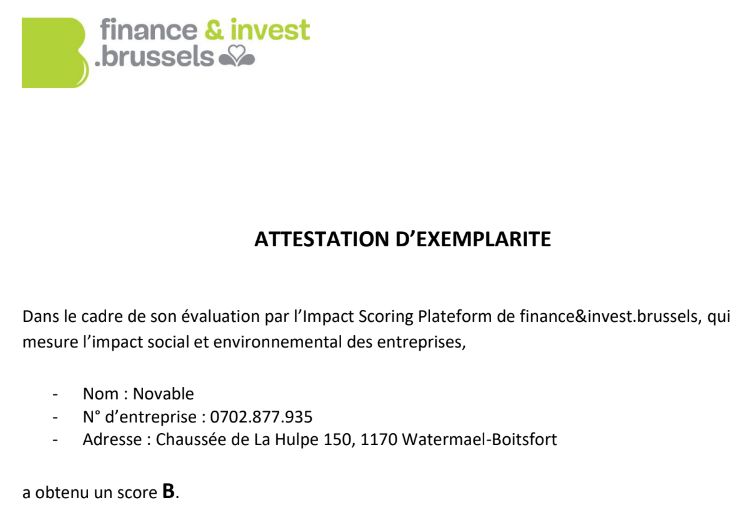When it comes to startups, Environmental, Social, and Governance considerations might not seem like an immediate priority. Many assume it is primarily for large corporations with extensive resources and dedicated teams. However, Novable’s journey reveals that it is just as relevant—and impactful—for smaller companies. When it comes to startups, Environmental, Social, and Governance considerations might not seem like an immediate priority. Many assume it is primarily for large corporations with extensive resources and dedicated teams. However, Novable’s journey reveals that it is just as relevant—and impactful—for smaller companies. When it comes to startups, Environmental, Social, and Governance considerations might not seem like an immediate priority. Many assume it is primarily for large corporations with extensive resources and dedicated teams. However, Novable’s journey reveals that it is just as relevant—and impactful—for smaller companies. When it comes to startups, Environmental, Social, and Governance considerations might not seem like an immediate priority. Many assume it is primarily for large corporations with extensive resources and dedicated teams. However, Novable’s journey reveals that it is just as relevant—and impactful—for smaller companies. When it comes to startups, Environmental, Social, and Governance considerations might not seem like an immediate priority. Many assume it is primarily for large corporations with extensive resources and dedicated teams. However, Novable’s journey reveals that it is just as relevant—and impactful—for smaller companies.
When it comes to startups, Environmental, Social, and Governance (ESG) considerations might not seem like an immediate priority. Many assume ESG is primarily for large corporations with extensive resources and dedicated teams. However, Novable’s journey reveals that it is just as relevant—and impactful—for smaller companies.

ESG often carries the perception of being a compliance-driven framework for big businesses. Yet, for startups, it can serve as more than a checklist; it’s a strategic tool for creating long-term value. By embedding these principles into operations early on, startups can align their business practices with the values of their team, customers, and investors, setting themselves apart in competitive markets.
Incorporating ESG practices is not without its hurdles. Startups often operate in shared office spaces, making it difficult to measure metrics like water consumption or energy usage. To help with this, tools like Greenomy and D-carbonize can be a significant support. While such limitations may affect certain evaluations, the focus should remain on progress rather than perfection.
Novable’s journey demonstrates that even modest actions can lead to meaningful change. By prioritising initiatives aligned with its core values, the company has achieved measurable results:
These initiatives recently culminated in a significant achievement: Novable received an Exemplarity Award for ESG criteria. This recognition underscores the company’s dedication to aligning its business practices with its core values and contributing to broader positive change.
Novable’s experience highlights that ESG is more than just a set of metrics; it’s a mindset that informs how a business operates, innovates, and grows. For startups, adopting these principles early on fosters resilience, trust, and a strong foundation for sustainable success.
Startups looking to integrate ESG into their operations can start small, focusing on authentic actions that align with their mission and values. Even modest steps can create significant ripple effects—paving the way for both business success and a better world.
Have you considered starting your ESG journey? Share your opinion on LinkedIn!